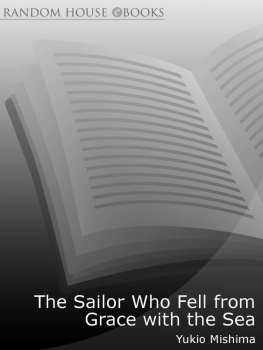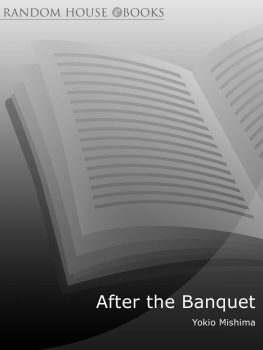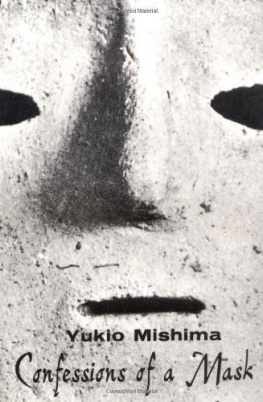Table of Contents
This eBook is copyright material and must not be copied, reproduced, transferred, distributed, leased, licensed or publicly performed or used in any way except as specifically permitted in writing by the publishers, as allowed under the terms and conditions under which it was purchased or as strictly permitted by applicable copyright law. Any unauthorised distribution or use of this text may be a direct infringement of the authors and publishers rights and those responsible may be liable in law accordingly.
Epub ISBN: 9781407054117
Version 1.0
www.randomhouse.co.uk
Published by Vintage 1999
9 10
Copyright Alfred A. Knopf Inc, 1965
Copyright renewed 1993 by Alfred A. Knopf Inc
This book is sold subject to the condition that it shall not,
by way of trade or otherwise, be lent, resold, hired out,
or otherwise circulated without the publishers prior
consent in any form of binding or cover other than that
in which it is published and without a similar condition,
including this condition, being imposed on the
subsequent purchaser
Originally published in Japanese as Gogo No Eiko by
Kodansha 1963
Lyrics for the song which appears for the first time on pages 1718,
I Cant Give Up the Sailors Life are from a poem by Ryo Yano
First published in the United States in 1965 by
Alfred A. Knopf, Inc, New York.
Vintage
Random House, 20 Vauxhall Bridge Road,
London SW1V 2SA
www.vintage-classics.info
Addresses for companies within The Random House Group Limited
can be found at: www.randomhouse.co.uk/offices.htm
The Random House Group Limited Reg. No. 954009
A CIP catalogue record for this book
is available from the British Library
ISBN 9780099284796
The Random House Group Limited supports The Forest
Stewardship Council (FSC), the leading international forest
certification organisation. All our titles that are printed on
Greenpeace approved FSC certified paper carry the FSC logo.
Our paper procurement policy can be found at:
www.rbooks.co.uk/environment
Printed and bound in Great Britain by
CPI Bookmarque, Croydon, CR0 4TD
About the Author
Yukio Mishima was born into a samurai family and imbued with the code of complete control over mind and body, and loyalty to the Emperor the same code that produced the austerity and self-sacrifice of Zen. He wrote countless short stories and thirty-three plays, in some of which he acted. Several films have been made from his novels, including The Sound of Waves; Enjo, which was based on The Temple of the Golden Pavilion; and The Sailor Who Fell from Grace with the Sea. Among his other works are the novels Confessions of a Mask and Thirst for Love and the short-story collections Death inMidsummer and Acts of Worship.
After Mishima conceived the idea of The Sea of Fertility tetralogy in 1964, he frequently said he would die when it was completed. On November 25th, 1970, the day he completed The Decay of the Angel, the last novel of the cycle, Mishima committed seppuka (ritual suicide) at the age of 45.
ALSO BY YUKIO MISHIMA
The Sea of Fertility, a cycle of four novels
Spring Snow
Runaway Horses
The Temple of Dawn
The Decay of the Angel
Confessions of a Mask
Thirst for Love
Forbidden Colours
After the Banquet
The Temple of the Golden Pavilion
Five Modern No Plays
The Sound of Waves
Death in Midsummer
Acts of Worship
CONTENTS
THE SAILOR WHOFELL FROM GRACEWITH THE SEATRANSLATED FROM THE JAPANESE BYJohn NathanYukio MishimaVINTAGE BOOKSLondon
PART ONE
SUMMER
CHAPTER ONE
S LEEP well, dear.
Noborus mother closed his bedroom door and locked it. What would she do if there were a fire? Let him out first thingshe had promised herself that. But what if the wooden door warped in the heat or paint clogged the keyhole? The window? There was a gravel path below; besides, the second floor of this gangling house was hopelessly high.
It was all his own fault. It would never have happened if he hadnt let the chief persuade him to sneak out of the house that night. There had been endless questions afterward, but he hadnt revealed the chiefs name.
They lived at the top of Yado Hill in Yokohama, in a house his father had built. After the war the house had been requisitioned by the Occupation Army and toilets had been installed in each of the upstairs bedrooms: being locked in at night was no great discomfort, but to a thirteen-year-old the humiliation was enormous.
Left alone one morning to watch the house and in need of something to vent his spite on, Noboru began to rummage through his room.
A large chest of drawers was built into the wall adjoining his mothers bedroom. He pulled out all the drawers, and as he was dumping their contents onto the floor he noticed a trickle of light spilling into one of the empty compartments of the chest.
He thrust his head into the space and discovered the source of the light: strong summer sunlight was reflecting off the sea into his mothers empty bedroom. There was plenty of room in the chest. Even a grownup might squeeze in up to his belly if he lay flat. Peering at his mothers bedroom through the peephole, Noboru sensed something new and fresh about it.
The shiny brass beds his father had ordered from New Orleans were set against the wall on the left side just as they had been before his death. A bedspread was smoothed neatly over one of them, and on the white cloth a large letter KKuroda was the family name. A blue straw sun hat, trailing a long pale-blue ribbon, lay on the bed. On the night table stood a blue electric fan.
Across the room, near the window, there was a dressing table fitted with an oval three-piece mirror. The mirror was not quite closed; the upper edges of the glass glinted through the cracks like splinters of ice. In front of the mirror rose a small city of bottles: eau de Cologne, perfume sprays, lavender toilet water, a Bohemian glass goblet, facets glittering in the light... a crumpled pair of brown-lace gloves lay withering like cedar leaves.
A couch and two chairs, a floor lamp, and a low, delicate table were arranged directly under the window. An embroidery frame, the beginnings of a pattern needled into the silk, was propped on the couch. The vogue for such things had passed long ago, but his mother loved all kinds of handicraft. The pattern seemed to be the wings of some gaudy bird, a parrot maybe, on a background of silver-gray. A pair of stockings lay in a heap next to the embroidery. The shocking embrace of sheer nylon and the imitation damask of the couch gave the room an air of agitation. She must have noticed a run on her way out and changed in a hurry.
Only dazzling sky and a few fragments of cloud, hard and glossy as enamel in the light bouncing off the water, could be seen through the window.
Noboru couldnt believe he was looking at his mothers bedroom; it might have belonged to a stranger. But there was no doubt that a woman lived there: femininity trembled in every corner, a faint scent lingered in the air.
Then a strange idea assailed him. Did the peephole just happen to be here, an accident? Orafter the warwhen the soldiers families had been living together in the house.... He had a sudden feeling that another body, larger than his, a blond, hairy body, had once huddled in this dusty space in the wall. The thought soured the close air and he was sickened. Wriggling backwards out of the chest, he ran to the next room. He would never forget the queer sensation he had when, flinging open the door, he burst in.












